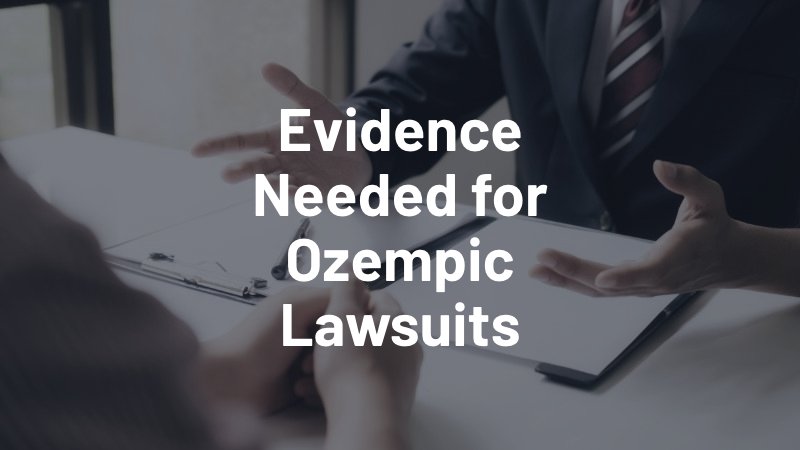Ozempic was supposed to help people manage diabetes, not cause painful side effects like gastroparesis. If you’ve experienced serious health complications after taking this medication, you may be wondering what evidence you need to build a strong legal case.
The success of your lawsuit depends on gathering the right documentation that clearly connects your injuries to Ozempic use. From medical records to personal journals, each piece of evidence plays an important role in demonstrating the harm you’ve suffered.

Medical Records Showing Ozempic Use and Complications
Your medical records are the backbone of your Ozempic lawsuit. These documents provide concrete proof that you took the medication and suffered harmful side effects as a result. Hospital records show exactly what happened during your treatment, including any emergency procedures, diagnostic tests, and complications that arose after starting Ozempic.
When your physician writes down new symptoms, worsening conditions, or concerns about your medication, these observations become vital evidence. Every office visit, specialist referral, and treatment adjustment creates a paper trail that connects your health problems directly to Ozempic use.
Medical Experts Who Can Testify on Your Behalf
Expert medical testimony can make or break your Ozempic lawsuit. Endocrinologists, pharmacologists, and other medical professionals possess the expertise to interpret complex medical data and explain how Ozempic caused your injuries. These experts can testify about the drug’s known side effects, how it interacts with your body, and whether the manufacturer provided adequate warnings about potential risks.
A qualified medical expert can also challenge the defense’s arguments and provide professional opinions that carry significant weight in court. They can explain the science behind your injuries in terms that judges and juries can understand, making your case more compelling and credible.
Prescriptions and Pharmacy Records
Your prescription history provides irrefutable proof that a licensed healthcare provider prescribed Ozempic for your treatment. These records eliminate any doubt about whether you actually took the medication and prevent pharmaceutical companies from arguing that you were using similar drugs or self-medicating.
Pharmacy records offer detailed information about your medication timeline, including dosages, refill dates, and administration schedules. This documentation helps establish patterns between your Ozempic use and the onset of symptoms.
Personal Journals Documenting Your Recovery
Keeping a detailed journal while taking Ozempic strengthens your case in ways that medical records alone cannot. Your personal documentation captures the daily reality of living with Ozempic complications: the pain, discomfort, and limitations that may not show up in clinical notes.
Write down how you feel each day, what symptoms you experience, and how these problems affect your daily activities. Note when symptoms started, how they have progressed, and any patterns you notice. This personal record creates a compelling story that helps judges and juries understand the true impact of your injuries.
Trust Estey & Bomberger, LLP to Help You Seek Justice
You trusted Ozempic to help manage your health, but serious side effects have left you questioning whether you received adequate warnings. Building a strong Ozempic lawsuit requires specific medical records, documentation of the drug’s effects, and proof that your condition is connected to the defective medication.
Ozempic lawsuit attorneys at Estey & Bomberger, LLP can help you gather the evidence needed to pursue justice. If you were harmed by this medication, contact us at (877) 661-7042 to discuss your case and begin building your claim.
